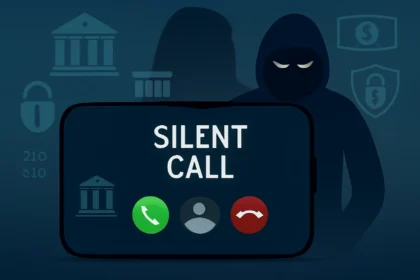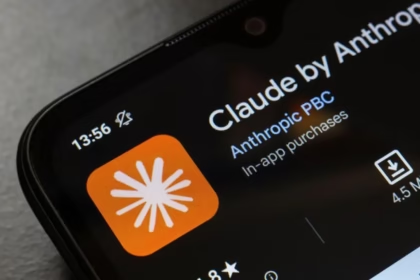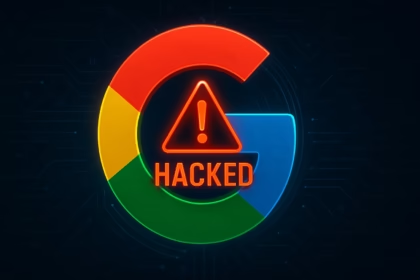In one of the most significant higher education data breaches in recent years, Columbia University has confirmed that a hacker gained access to sensitive personal information of millions of applicants and students — including whether they were accepted or rejected by the prestigious Ivy League institution.
The breach, which occurred in June 2025, involved the theft of a 1.6-gigabyte database containing application records dating back several decades, according to a Bloomberg News investigation. The stolen data was later shared with Bloomberg by an individual claiming responsibility for the cyberattack.
What Was Stolen?
The compromised dataset includes highly personal and confidential details such as:
- Full names
- University-issued ID numbers
- Citizenship status
- Academic program applications (e.g., undergraduate, graduate, medical, law)
- Admission decisions — whether applicants were accepted, waitlisted, or rejected
Bloomberg independently verified the authenticity of the data by cross-referencing it with eight current students and alumni who applied between 2019 and 2024. All records matched accurately, confirming the breach’s severity.
Notably, Social Security numbers, financial aid details, or payment information do not appear to be part of the leaked dataset, though experts warn that even partial data can be exploited for identity theft, phishing scams, or social engineering attacks.
A Growing Target: Why Universities Are Vulnerable
Colleges and universities have become prime targets for cybercriminals due to their vast repositories of personal data, decentralized IT systems, and often outdated cybersecurity infrastructure.
Unlike corporations that invest heavily in digital defense, many academic institutions prioritize open access and research collaboration — leaving gaps that hackers can exploit. In this case, the attacker reportedly bypassed authentication protocols to gain access to legacy application databases stored on a third-party platform used by the university.
While Columbia has not yet disclosed how the breach occurred or which vendor may have been compromised, sources suggest the intrusion leveraged a previously unknown software vulnerability — a so-called zero-day exploit — before being detected.
“This isn’t just about grades or IDs,” said Dr. Lena Torres, a cybersecurity expert at NYU. “Admission decisions are deeply personal. For some, rejection carries emotional weight. Leaking that information publicly could lead to embarrassment, blackmail, or reputational harm.”
Fallout and Response
As of early July 2025, Columbia University issued a brief public statement acknowledging “unauthorized access” to certain historical application systems and launched an investigation with federal cybersecurity agencies, including the FBI and CISA (Cybersecurity and Infrastructure Security Agency).
Affected individuals are expected to receive notification emails and offers for free credit monitoring services, though no timeline has been provided for full disclosure.
The incident raises urgent questions about data retention policies: Why were decades-old applications still stored in accessible databases? Experts argue that schools should adopt stricter data lifecycle management, automatically anonymizing or deleting old records after a set period.
Broader Trend: Education Under Cyber Siege
This breach follows a wave of cyberattacks on academic institutions worldwide:
- In 2024, the University of California system suffered a ransomware attack affecting over 2 million people.
- Oxford and Cambridge reported repeated intrusions linked to state-sponsored hacking groups.
- Just weeks before the Columbia breach, MIT disclosed a phishing campaign targeting graduate admissions offices.
Meanwhile, student-led hacking incidents are also on the rise — as highlighted by the UK’s Information Commissioner’s Office earlier in 2025, which revealed that 57% of insider cyberattacks in schools were carried out by students themselves.
At Columbia, officials are now reviewing internal security practices, third-party vendor protocols, and access controls across all administrative platforms.
What Applicants Should Do Now
If you’ve ever applied to Columbia University, take these steps immediately:
- Monitor your inbox for official communications from the university regarding the breach.
- Enable multi-factor authentication (MFA) on all personal accounts, especially email and financial services.
- Be wary of phishing attempts — scammers may use leaked info to impersonate university staff.
- Consider freezing your credit through major bureaus (Equifax, Experian, TransUnion) if you’re concerned about identity theft.
Final Thoughts: Trust in the Digital Age
The Columbia breach is more than a technical failure — it’s a wake-up call for educational institutions everywhere. In an era where data is power, safeguarding the privacy of applicants — whether admitted or not — must be a top priority.
For thousands of hopeful students, applying to college is a moment of vulnerability. That trust should never be exploited by a line of code.
We’ll continue to update this story as more information becomes available.
👉 Stay informed. Stay secure. Protect your digital identity.






















Of course, what a splendid site and revealing posts, I will bookmark your blog.Best Regards!